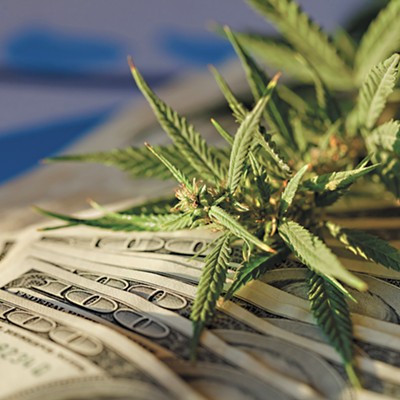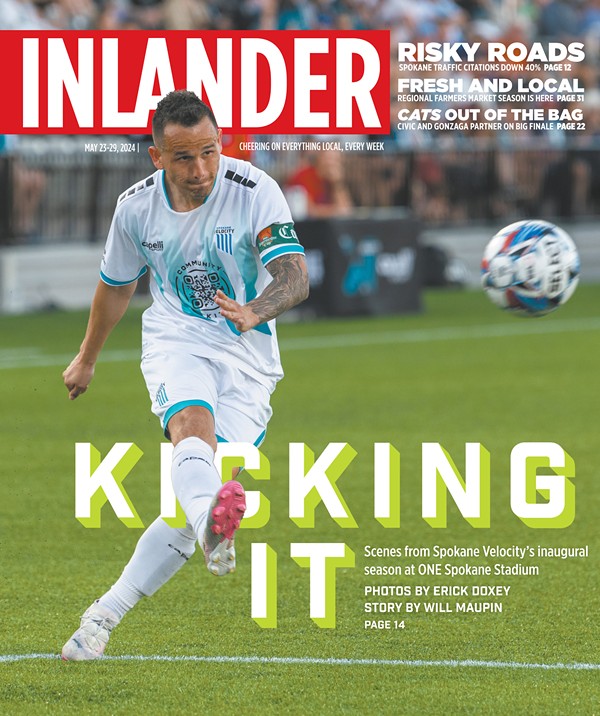In mid-April, photos of signs posted in the Audubon-Downriver neighborhood were added to Spokane's Reddit page (r/Spokane), warning that dogs had ingested cannabis in the area and needed veterinary hospitalization.
While I was unable to determine a cause behind the alleged THC overdoses, or the posting of the signs, it's worth looking into what pet owners should be aware of.
THC poisoning is a legitimate risk for pets, regardless of whether or not their owners consume cannabis.
Dogs are especially at risk of THC poisoning because studies have shown that their endocannabinoid receptors — the part of the brain that absorbs the effect-producing chemicals of cannabis — far outnumber those in human brains.
Which is to say that smaller amounts of cannabis than would affect humans can have outsized impacts on dogs.
The other risk is that dogs will eat anything, even human feces. As disgusting as it may be, active THC can exist in human feces, effectively rendering it an edible for dogs.
Fortunately, cannabis poisoning is not lethal when it comes to dogs or cats, or humans.
If a dog eats a joint, an edible or THC-tainted feces, the dog can be significantly affected by the THC content. They may vomit, become uncoordinated, have dilated pupils, get tremors, or be unable to control their bladders. The good news is, the THC will not be fatal.
According to research published by the National Institutes of Health in 2013, the "minimum lethal oral dose for dogs for THC is more than 3 grams per kilogram" of body weight. For comparison, the average lethal dose of cocaine in mice — there aren't many studies of dogs and drugs — is 95.1 milligrams per kilogram. That is a difference of nearly 3,000 milligrams per kilogram of body weight.
That said, cannabis poisoning in dogs can be a serious issue, especially if your dog gets into your stash of edibles. Edibles meant for humans typically contain between about 3 milligrams and 100 milligrams of THC. They also often contain chocolate or other substances that are truly toxic to dogs.
If you think your dog has consumed cannabis, whether it is plain flower or a chocolate edible, the best course of action is to head to an animal hospital. Cannabis is legal in Washington, and vets will not concern themselves with how your dog consumed cannabis. Their main goal will be to treat your dog.
"Regardless of how your dog's marijuana ingestion occurs, you should always seek veterinary advice," the American Kennel Club says. ♦






















